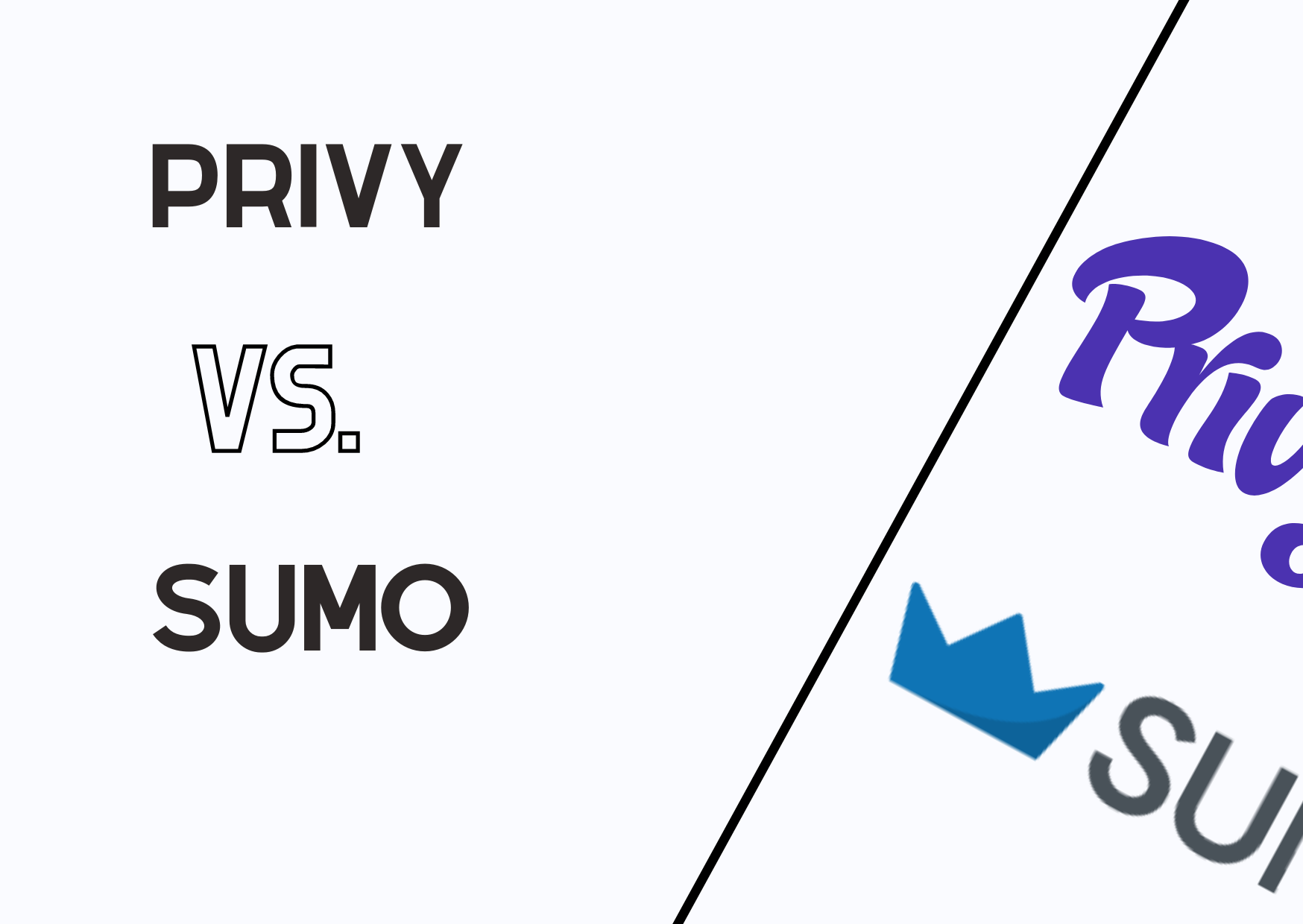As website owners, choosing the right platform to help increase conversions and drive sales can be daunting.
Two popular options in the market are Privy and Sumo. Both platforms offer a variety of features and tools to help website owners capture email addresses and increase sales.
In this comparison, we will take a closer look at the similarities and differences between Privy and Sumo and help you decide which platform best fits your business needs.

Similarities
Privy and Sumo are both platforms that provide website owners with tools to capture email addresses and increase sales.
Both platforms offer customizable email opt-in forms, visitor targeting, and integration with popular email service providers (ESP) such as MailChimp, ActiveCampaign, and Constant Contact.
Both platforms also offer A/B testing options and analytics to track the performance of forms and identify trends.
Additionally, both platforms offer e-commerce integration options, such as connecting to Shopify or WooCommerce stores, to help increase sales and reduce cart abandonment.
Integrations
In terms of integrations, both Privy and Sumo offer integration with popular email service providers (ESPs) such as MailChimp, ActiveCampaign, and Constant Contact. However, Sumo offers integration with a wider range of ESPs, including Klaviyo, InfusionSoft, Hubspot, Sailthru, Pardot, Ontraport, Salesforce, and more, while Privy's integration options are more limited.
Both platforms also offer integration with e-commerce platforms such as Shopify and WooCommerce. Sumo's e-commerce integration includes features such as reducing cart abandonment, increasing average order value, and providing discount codes. Privy's e-commerce integration is more focused on capturing email addresses and building email lists.
Here are the Privy's integrations.
Additionally, Sumo offers integration with Google Analytics, which allows website owners to track the performance of their forms and identify trends. Privy does not directly integrate with Google Analytics, but it offers its own analytics tools for tracking and reporting.
In summary, while Privy and Sumo offer similar integrations with ESPs and e-commerce platforms, Sumo offers more advanced integration options and features, particularly in email marketing and analytics.
Features
Several key differences between the two platforms set them apart from one another.
One major difference is the focus of the two platforms. Privy focuses primarily on lead magnet capture and email marketing campaigns, while Sumo offers a wider range of tools, including lead magnet capture, email marketing campaigns, pop-up campaigns, and social media sharing. This means that Sumo provides more options for website owners to choose from when it comes to capturing email addresses and increasing sales.
Another difference is the level of customization available on the two platforms. Privy allows users to create highly customized forms and campaigns, while Sumo offers a limited set of customizable templates. This may be a disadvantage for website owners who want more control over the design and layout of their forms and campaigns.
Privy also offers dynamic targeting options, where users can target specific groups of visitors based on their behavior and actions on the website. Sumo does not offer this feature, which limits its targeting capabilities.
Finally, Privy has more advanced e-commerce integration options, such as abandoned cart recovery and product upsell. On the other hand, Sumo offers basic integration options such as connecting to Shopify or WooCommerce stores.
Pricing
Privy and Sumo are both marketing tools that provide website owners with a variety of features to help them increase conversions and grow their email lists. However, they differ in their pricing plans and the features they offer.
Privy offers a free plan that includes basic features such as email capture forms, targeting options, and analytics. They also have a Pro plan, which includes advanced features such as A/B testing, custom forms, and e-commerce integrations. Prices for the Pro plan starting at $24 per month.
On the other hand, Sumo offers a free plan that includes customizable email opt-in forms, unlimited subscribers and 10,000 emails per month, and the option to integrate with popular email providers such as Mailchimp and Constant Contact.
They also have a Pro plan that includes advanced features such as A/B testing, no limitations on subscribers or emails per month, integration with advanced email providers like Klaviyo and Infusionsoft, and e-commerce features like connecting to Shopify or WooCommerce stores, analytics, and 1-on-1 onboarding. Prices for the Pro plan starting at $29 per month.
Privy and Sumo offer similar features, such as email capture forms, targeting options, and analytics. However, Sumo's free plan is more limited in terms of the number of emails sent per month compared to Privy's free plan. Additionally, Sumo's Pro plan is more expensive than Privy's Pro plan.
Which One is the Best: Privy or Sumo?
Privy and Sumo offer a variety of tools for website owners to capture email addresses and increase sales.
However, Privy primarily focuses on email capture and lead generation through overlays and exit-intent technology, while Sumo offers a wider range of features such as email opt-in forms, social media sharing, visitor targeting, and analytics.
Additionally, Sumo offers a free plan, while Privy's pricing starts at a paid plan. Businesses that prioritize email capture and lead generation may find Privy to be a better fit, while those looking for a more comprehensive solution with a wider range of features may prefer Sumo.
Therefore, it is recommended for businesses thoroughly evaluate their specific needs and goals before deciding.
Overall
Privy and Sumo are valuable tools that offer a variety of features, including email opt-in forms, visitor targeting, analytics, and integration with popular email service providers.
However, it ultimately comes down to the specific needs and goals of the business. Privy's advanced targeting options, GDPR compliance, and ability to import custom code make it a great option for those looking to personalize and fine-tune their campaigns.


